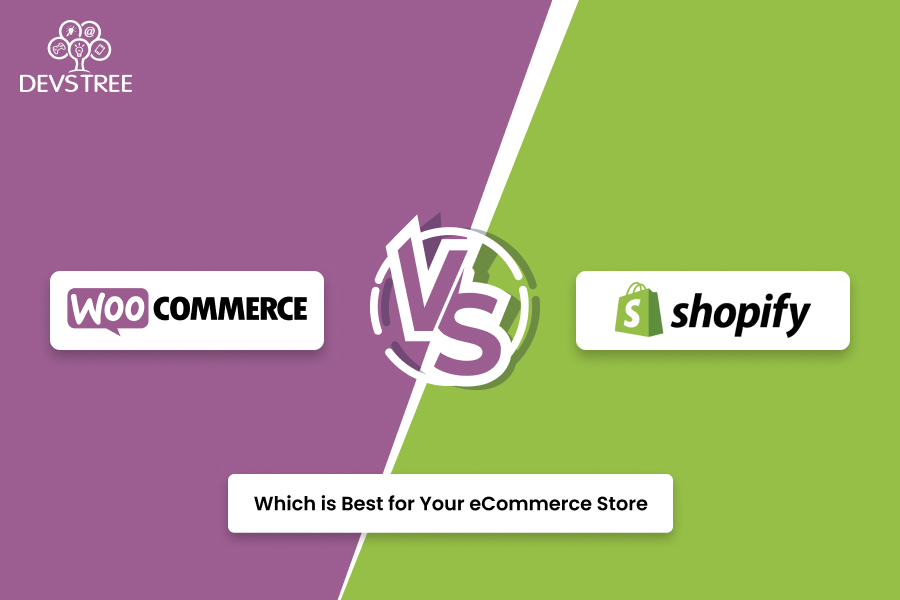
Introduction The choice of the best e-commerce platform is an essential decision to make when setting up the online shop. Two major contenders in this domain of e-commerce include WooCommerce along with Shopify.
Both platforms have distinct characteristics and advantages knowing the different features is crucial to make an informed decision about your online business. In this blog we’ll conduct an extensive comparison between WooCommerce as well as Shopify in order to assist you decide the best platform for your business’s needs.
WooCommerce Empowers E-Commerce through WordPress
WooCommerce is an open-source e-commerce plugin specifically designed for WordPress. Here’s what sets it Apart:
Flexibility: If experienced of WordPress, WooCommerce seamlessly integrates with it, giving you complete control over the online store’s appearance and function.
Customization: You can have the option of customizing the appearance of your store and its features by using the wide variety of themes and plugins that are available in the WordPress ecosystem.
No Monthly Fees: WooCommerce is a no-cost plugin, however you’ll be charged in hosting and domain registration and premium extensions if decide to use these extensions.
Ownership: The Ownership WooCommerce you have complete control and ownership over your e-commerce website and crucial information.
Scalability: As your business expands, WooCommerce allows for unlimited products, categories, and product variations.
Shopify: All-In-One E-Commerce Solution
Shopify offers an entire online shopping platform with its own CMS for content management (CMS). Here are the top characteristics of Shopify:
User-Friendly: Popular for its simplicity of use, Shopify is an excellent choice for people who are just beginning to discover this world of shopping online.
Managed Hosting: Managed Hosting with managed hosting you will need worry about hosting, security or technical issues as Shopify handles all of these aspects for you.
App Store: Shopify App Store provides a variety of add-ons and applications which can improve the capabilities of your store.
Monthly fees: Shopify requires a monthly subscription fee. There are a variety of plans to fit various budgets.
Scaling Made Simple: Shopify offers a seamless transition from small to large e-commerce operations, ensuring scalability.
Choosing the Right Platform for Your Business
The final decision on WooCommerce and Shopify depends on your personal needs and preferences. Consider the following aspects:
Technical Expertise: It’s an excellent choice if you’re confident with WordPress and appreciate the possibility to modify your site. Shopify is best suited for users who are just beginning to learn about the platform and need an all-in-one solution that is easy to use.
Budget: While WooCommerce can be cost-effective, you should consider expenses related to hosting and premium plugins. Shopify’s pricing is more transparent, encompassing hosting and other services.
Scalability: Both platforms can accommodate a growing business, but WooCommerce offers greater flexibility when it comes to scalability.
Design and Customization: WooCommerce opens up endless design possibilities, whereas Shopify offers user-friendly customization options through themes and apps.
Ownership and Control: Ownership and Control WooCommerce you are in complete control over your website while Shopify handles hosting and other features of your shop.
Conclusion
When it comes to WooCommerce against. Shopify showdown, there’s no universally applicable solution. The decision is largely based on your goals for business as well as your technical expertise and your budget. Thoroughly assess your specific requirements to determine which platform aligns best with your e-commerce store’s unique needs.
Remember that both WooCommerce and Shopify possess their own strengths and can be excellent choices when utilized in the right context. The key is to select the platform that complements your business strategy and aids in achieving your online sales objectives. If you’re considering the cost of Shopify website development or seeking an eCommerce website development company, make sure to evaluate how these factors align with your chosen platform.
